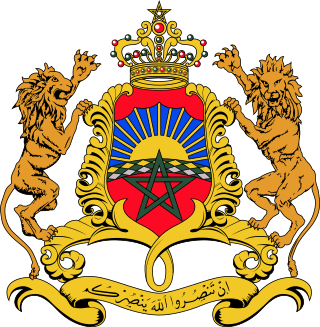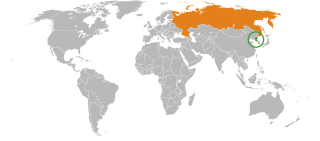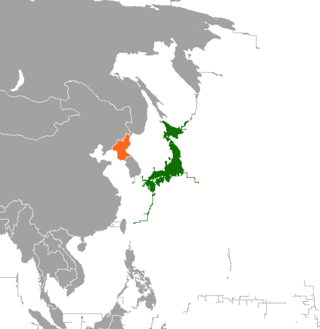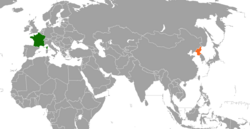
Burundi's relations with its neighbours have often been affected by security concerns. During the Burundian Civil War, hundreds of thousands of Burundian refugees have at various times crossed to neighboring Rwanda, Tanzania, and the Democratic Republic of the Congo. Some Burundian rebel groups have used neighboring countries as bases for insurgent activities. The 1993 embargo placed on Burundi by regional states hurt diplomatic relations with its neighbors; relations have improved since the 1999 suspension of these sanctions.

The government's official policy is one of nonalignment. In its search for assistance to meet the goal of national reconstruction, the government of Equatorial Guinea has established diplomatic relations with numerous European and Third World countries. Having achieved independence under UN sponsorship, Equatorial Guinea feels a special kinship with that organization. It became the 126th UN member on November 12, 1968. Equatorial Guinea served as a non-permanent member on the United Nations Security Council from 2017 to 2019.

In the 19th century France built a new French colonial empire second only to the British Empire. It was humiliated in the Franco-Prussian War of 1870–71, which marked the rise of Germany to dominance in Europe. France allied with Great Britain and Russia and was on the winning side of the First World War. Although it was initially easily defeated early in the Second World War, Free France, through its Free French Forces and the Resistance, continued to fight against the Axis powers as an Allied nation and was ultimately considered one of the victors of the war, as the allocation of a French occupation zone in Germany and West Berlin testifies, as well as the status of permanent member of the United Nations Security Council. It fought losing colonial wars in Indochina and Algeria. The Fourth Republic collapsed and the Fifth Republic began in 1958 to the present. Under Charles de Gaulle it tried to block American and British influence on the European community. Since 1945, France has been a founding member of the United Nations, of NATO, and of the European Coal and Steel Community. As a charter member of the United Nations, France holds one of the permanent seats in the Security Council and is a member of most of its specialized and related agencies.

Morocco is a member of the United Nations and belongs to the African Union, Arab League, Arab Maghreb Union (UMA), Organisation of Islamic Cooperation (OIC), the Non-Aligned Movement and the Community of Sahel-Saharan States (CEN-SAD). Morocco's relationships vary greatly between African, Arab, United States, United Kingdom, Australia, and Western states. Morocco has had strong ties with the West in order to gain economic and political benefits. France and Spain remain the primary trade partners, as well as the primary creditors and foreign investors in Morocco. From the total foreign investments in Morocco, the European Union invests approximately 73.5%, whereas the Arab world invests only 19.3%. As of 2009, many countries from the Persian Gulf and Maghreb regions are also becoming more involved in large-scale development projects in Morocco.

For the two decades preceding the Republic of the Congo's 1991 National Conference, the country was firmly in the socialist camp, allied principally with the Soviet Union and other Eastern bloc nations. Educational, economic, and foreign aid links between Congo and its Eastern bloc allies were extensive, with the Congolese military and security forces receiving significant Soviet, East German, and Cuban assistance.

Belgium is a country in Europe and member of major international organizations like the European Union and NATO which are both headquartered in Brussels, Belgium.

Iran–North Korea relations are described as being positive by official news agencies of the two countries. Diplomatic relations improved following the Iranian Revolution in 1979 and the establishment of an Islamic Republic. Iran and North Korea pledge cooperation in educational, scientific, and cultural spheres. Some media reports claim this cooperation extends to nuclear cooperation, though official U.S. government publications and academic studies have disputed this. The United States has been greatly concerned by North Korea's arms deals with Iran, which started during the 1980s with North Korea acting as a third party in arms deals between the Communist bloc and Iran, as well as selling domestically produced weapons to Iran, and North Korea continues selling missiles to Iran. North Korea and Iran are the remaining two members of George W. Bush's "Axis of evil", which has led to many of the concerns regarding Iran–North Korea relations.

The Soviet Union was the first to recognize North Korea on October 12, 1948, shortly after the proclamation, as the sole legitimate authority in all of Korea. The Soviet Union supported North Korea during the Korean War. North Korea was founded as part of the Communist bloc, and received major Soviet military and political support. The comprehensive personality cult around North Korea's ruling family was heavily influenced by Stalinism. China and the Soviet Union competed for influence in North Korea during the Sino-Soviet split in the 1960s, as North Korea tried to maintain good relations with both countries.

New Zealand–North Korea relations refers to international relations between New Zealand and North Korea. Relations between the two countries have been almost non-existent since the division of Korea. During the Korean War in the 1950s, New Zealand troops fought as part of the United Nations force that repelled the North Korean invasion of South Korea. Since then, New Zealand and North Korea have had little contact, until July 2000 when North Korean Foreign Minister Paek Nam-sun and New Zealand Minister of Foreign Affairs Phil Goff met in Bangkok, leading to the establishment of diplomatic relations in March 2001. The New Zealand ambassador to South Korea based in Seoul is also cross-accredited to North Korea. In 2006, North Korea tested its first nuclear weapon, drawing criticism and suspension of relations by the New Zealand government, which holds a staunch anti-nuclear policy. New Zealand began re-establishing formal relations in 2007, when the New Zealand Minister of Foreign Affairs Winston Peters visited Pyongyang on November 20 to discuss possible political and economic deals with North Korea, on the basis that it started dismantling its nuclear weapons facilities.

France–South Korea relations have spanned over a period from the 19th century to the present. In 2016, France and Korea celebrated the 130th anniversary of diplomatic ties between the countries.

Colombia–France relations are the bilateral relations between Colombia and France. Both nations are members of the OECD and the United Nations.

France–Ireland relations refers to the bilateral relations between France and Ireland. France and Ireland are both members of the Council of Europe, European Union and the Organisation for Economic Co-operation and Development. Ireland is an associate member of La Francaphonie.

Democratic Republic of Congo formerly known as Zaire is a country located in central Africa. Its the second largest country in Africa and 11th in the world.

Japan–North Korea relations refers to international relations between Japan and North Korea. Relations between Japan and North Korea have never been formally established, but there have been diplomatic talks between the two governments to discuss the issue of kidnapped Japanese citizens and North Korea's nuclear program. Relations between the two countries are severely strained and marked by tension and hostility. According to a 2014 BBC World Service poll, 91% of Japanese people view North Korea's influence negatively, with just 1% expressing a positive view; the most negative perception of North Korea in the world.

India–North Korea relations, also called Indian-North Korean relations or Indo-North Korean relations, are the bilateral relations between India and North Korea. Both countries have growing trade and diplomatic relations. India maintains an embassy in Pyongyang, and North Korea has an embassy in New Delhi.

Uruguayans in France are people born in Uruguay who emigrated to France.

Burkina Faso–North Korea relations refers to the current and historical relationship between the Democratic People's Republic of Korea (DPRK) and Burkina Faso. Neither country maintains an embassy in the other, although the DPRK formerly had an ambassador accredited in the Burkinabé capital Ouagadougou.

North Korea–Spain relations are the bilateral and diplomatic relations between these two countries. North Korea operated an embassy in Spain from 2014 to 2023, although the embassy does not engage in consular affairs as there are no North Korean civilians currently residing in Spain. Spain does not have an embassy in North Korea, but its embassy in South Korea operates for matters related to Spanish citizens who intend to travel to North Korea. In addition, the Spanish Ministry of Foreign Affairs recommends its registration at the Seoul embassy, given the possibility that relations between the two Koreas, already delicate, may worsen at any time. That is why Spain considers the entire territory of North Korea as a risk zone for Spanish citizens traveling to this country.

DR Congo–France are the bilateral diplomatic relations between the Democratic Republic of the Congo and France. Both nations are members of the Organisation internationale de la francophonie and the United Nations.




















